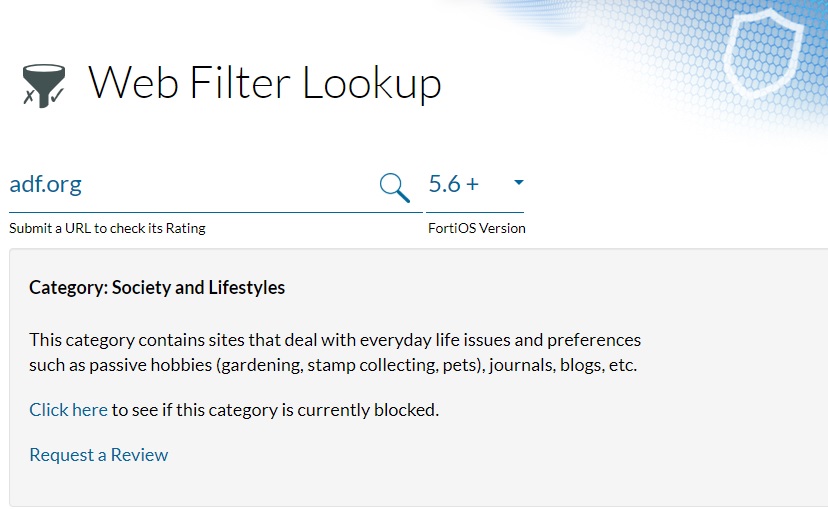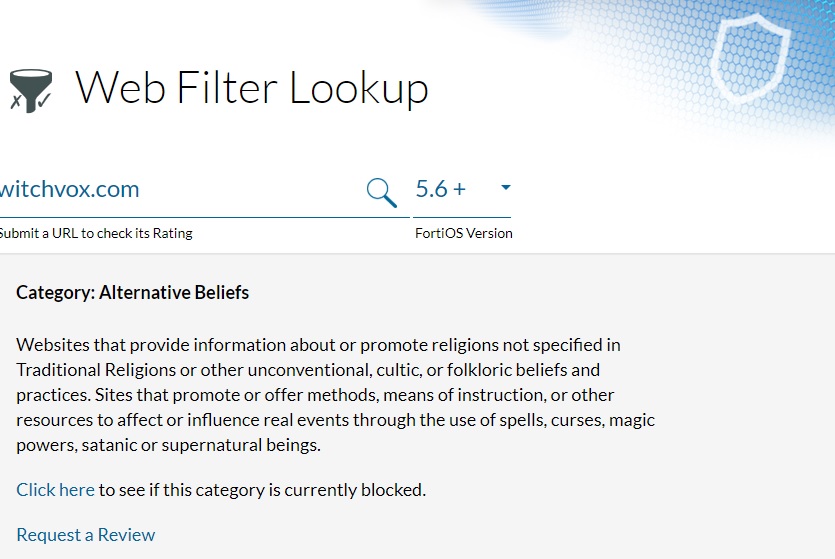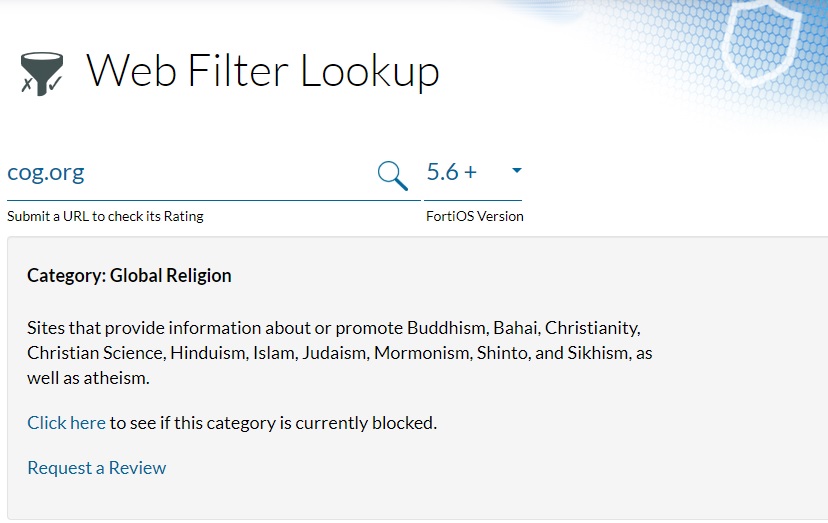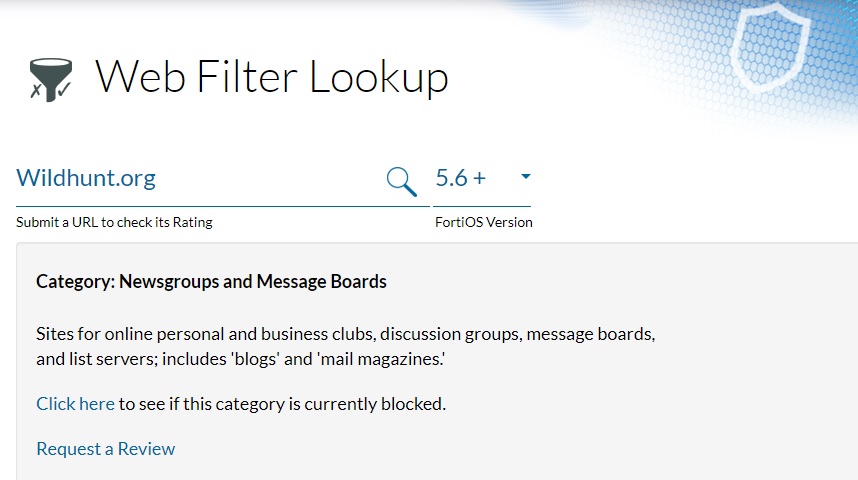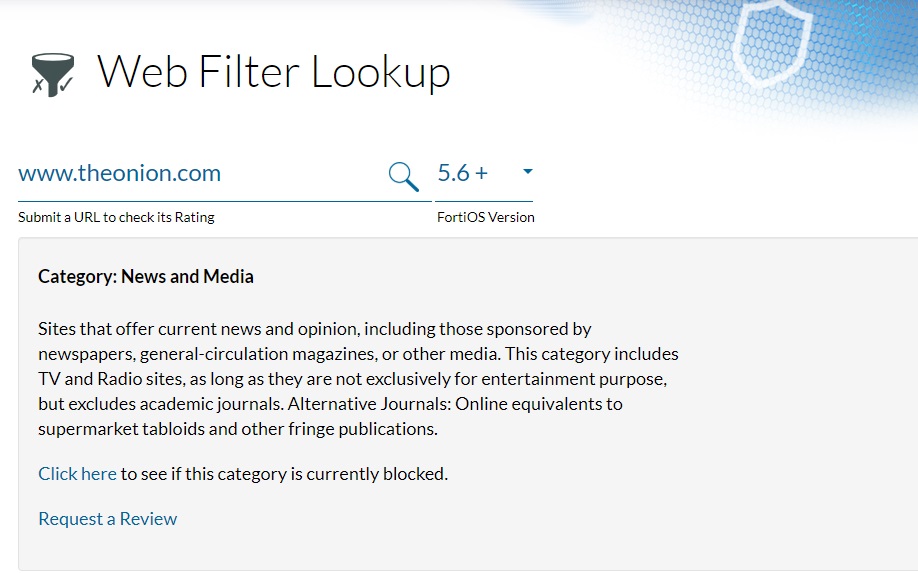BEDFORD, Mass. – As TWH reported two weeks ago, the Trump administration, via a speech delivered by Vice-President Mike Pence, affirmed the presence of religious content at Veterans Administration (VA) centers nationwide. Last week, a patient at one VA hospital, found that “Alternative Beliefs” are not included as part of that religious content, at least in terms of web searches using VA wifi.

The Military Religious Freedom Foundation (MRFF) confirmed that the patient is now their client. MRFF is a nationally recognized civil rights advocacy organization, currently represents over 65,000 and counting active-duty U.S. marines, sailors, soldiers, airmen, cadets, midshipmen, national guard, reservists and veterans, including matters involving High School JROTC around the nation, about 95% of whom self-identify as practicing Christians. As their website states, “The Military Religious Freedom Foundation is dedicated to ensuring that all members of the United States Armed Forces fully receive the Constitutional guarantees of religious freedom to which they and all Americans are entitled by virtue of the Establishment Clause of the First Amendment.”
The patient who experienced the block is reportedly a veteran and a reserve officer receiving treatment at the Edith Nourse Rogers Memorial Veterans Hospital in Bedford, Massachusetts. The patient reported that while on the hospital’s wifi system, certain websites were blocked because they belonged to some pre-defined category of “Alternative Beliefs.”
The patient is reported as having first been blocked while trying to access a site on Freemasonry. But then the patient attempted to reach WitchVox, a site well-known to many Wiccans and Witches. WitchVox – or The Witches’ Voice – is an online information and networking website that provides material to the Pagan community generally and to Wiccans and Witches specifically. Founded in 1997, WitchVox is one of the most popular online destinations for community information. After entering the WitchVox address, the patient reportedly received a “Web Page Blocked!” message.

via the Military Religious Freedom Foundation
The VA hospital employs the FortiGuard Web Filtering service that is programmed to restrict access to certain web content. FortiGuard is part of Fortinet, a cybersecurity firm in Sunnyvale, California.
Commercial web filters such as the one offered by FortiGuard come with pre-defined services as well as enhancements selected by users. As the service states, “FortiGuard Web Filtering enhances the web filtering features supplied with your FortiGate unit by sorting billions of web pages into a wide range of categories users can allow or block. The FortiGate unit accesses the nearest FortiGuard Web Filtering Service Point to determine the category of a requested web page, and then applies the security policy configured for that user or interface.”
The possible web filtering actions available in FortiGuard are Allow, Block, Monitor, Warning, and Authenticate. Only “Block” will result in a denial of connection and the users “will receive a replacement message explaining that access to the site is blocked.”
The security policy for web filtering is identified by the client, in this case, the wifi supplier at Edith Nourse Rogers Memorial Veterans Hospital, suggesting an intentional disabling of connection from users to sites identified as “alternative beliefs.”
FortiGuard defines “Alternative beliefs” as:
Websites that provide information about or promote religions not specified in Traditional Religions or other unconventional, cultic, or folkloric beliefs and practices. Sites that promote or offer methods, means of instruction, or other resources to affect or influence real events through the use of spells, curses, magic powers, satanic or supernatural beings.
However, the “Alternative Beliefs” filter does not apparently filter access to religious sites that are deemed acceptable or conventional. It is further unclear if this acceptability is determined by the user or FortiGuard. FortiGuard does, nonetheless, cite some examples of websites that would be blocked using its service: creepyhollows.com, churchofsatan.com, morespells.com, minghui.org. Creepyhollows is a site “devoted to Magic, Mysticism, Spirituality, & the Supernatural,” “morespells” is a site that has an extensive compendium of exactly that: spells. The minghui site is related to the Falun Gong, a Chinese spiritual practice centered upon the tenets of compassion, forbearance, and truthfulness that is outlawed in China by the People’s Republic of China’s Ministry of Civil Affairs.
This is not the first time FortiGuard filters have come under scrutiny. Users in other locations have reported concerns about the list of blocked categories at least over the last six years. One Reddit user noted “People are saying that all religious sites are probably blocked, but that’s not true. My boyfriend (who is a Christian) has used that same Wi-Fi before to get onto Christianity-related websites. None of them have ever been blocked.”
The filtering strategy and conditions for inclusion in the “Alternative Beliefs” are not entirely clear but FortiGuard appears to be modifying its rating history based on user reporting.
Our website, wildhunt.org is classified as “Newsgroups and Message Board” defined as “Sites for online personal and business clubs, discussion groups, message boards, and list servers; includes ‘blogs’ and ‘mail magazines.'” CNN and NPR, for example, are defined under “Category: News and Media” defined as, “Sites that offer current news and opinion, including those sponsored by newspapers, general-circulation magazines, or other media. This category includes TV and Radio sites, as long as they are not exclusively for entertainment purposes but excludes academic journals. Alternative Journals: Online equivalents to supermarket tabloids and other fringe publications.” The “Category: News and Media” also includes The Onion, “America’s Finest News Source.”
The website for Ár nDraíocht Féin: A Druid Fellowship was listed by FortiGuard as “Alternative Beliefs” on “Jul 23rd, 2009 @ 16:57:05 PDT,” then updated later that year to “Global Religion” on “Dec 1st, 2009 @ 05:31:32 PST” only to updated again 2 hours later to the current “Society and Lifestyles” on “Dec 1st, 2009 @ 07:31:42 PST”.
The website for Covenant of the Goddess (CoG), however, is in “Category: Global Religion” defined as “Sites that provide information about or promote Buddhism, Bahai, Christianity, Christian Science, Hinduism, Islam, Judaism, Mormonism, Shinto, and Sikhism, as well as atheism.” However, FortiGuard notes in its Rating History that the CoG website was previously listed as “Alternative Beliefs” on “Jan 6th, 2009 @ 01:00:14 PST” but was updated to “Global Religion” just this year, “Jan 16th, 2019 @ 14:47:10 PST”.
Based on the FortiGuard website, individuals may request reviews of websites and web filtering updates occur regularly, though the speed at which such review occurs is not clear.
TWH spoke with Michael Weinstein, MRFF founder and president. Weinstein was passionate and emphatic that the VA blocking web access to Wiccan or any minority faith’s web resources was against constitutional guarantees. He referenced both the current web filtering at the VA and the recent lawsuit concerning a Bible on display in the Manchester, New Hampshire VA Medical Center. Weinstein underscored that the VA is a state actor that must respect the personal religious freedom assured by the U.S. Constitution. Weinstein added that both instances clearly show an over-reach by the VA to favor one religious view over another.
The Wild Hunt is not responsible for links to external content.
To join a conversation on this post:
Visit our The Wild Hunt subreddit! Point your favorite browser to https://www.reddit.com/r/The_Wild_Hunt_News/, then click “JOIN”. Make sure to click the bell, too, to be notified of new articles posted to our subreddit.
